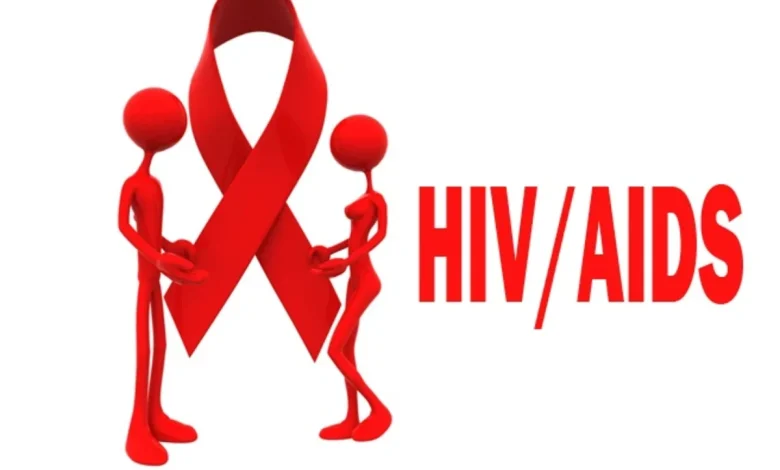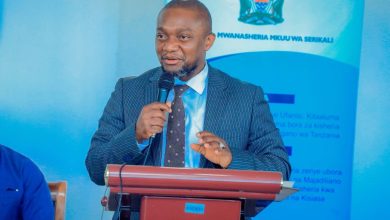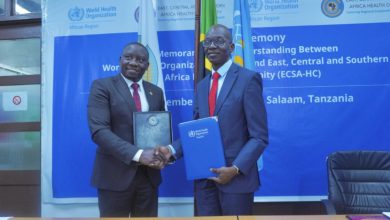Govt eyes new levies to boost health, HIV/AIDS funds

DODOMA: THE government has tabled a Bill proposing a draft of amendments to existing tax laws aimed at strengthening public revenue streams, aiming to increase domestic revenue while reinforcing funding for critical sectors such as health and the national HIV/ AIDS response.
Under the Finance Act 2025, the Bill for an Act to impose and alter certain taxes, duties, levies, fees and to amend certain written laws, which was tabled for first reading on Monday, outlines key fiscal measures intended to support priority sectors while diversifying the national revenue base.
Among key provisions, the Bill seeks to amend Section 18 of the AIDS Commission Act, Cap. 379, to recognise additional sources of revenue for the AIDS Trust Fund.
If passed, the fund will now benefit from excise duties on alcoholic beverages, a new HIV Response Levy on minerals and charges on train and airline tickets.
The government says the measure is aimed at strengthening the national response to HIV/AIDS and accelerating the provision of universal health insurance. Apparently, it is part of the government’s response to US aid cuts.
The Bill is also proposing amendments to the Universal Health Insurance Act, Cap. 161, whereas section 25 is amended to recognise new sources of revenue for the Universal Health Insurance Fund to finance various health services.
According to the proposed amendments, these sources include revenues from excise duty on alcoholic beverages, the HIV Response levy on minerals and charges on train and airline tickets.
The government has proposed an amendment to the Airport Service Charge Act, Cap 365, seeking to increase the charge levied on each air passenger by 1,000/-.
According to the Bill, 70 per cent of the additional revenue collected from the charge will be channeled to the AIDS Trust Fund, while 30 per cent will support the Universal Health Insurance Fund.
Meanwhile, excise duty on alcoholic products is poised to increase, with beer, wine and spirits facing hikes of 20/-, 30/- and 50/- per litre respectively.
ALSO READ: Why women and girls are special groups in HIV/AIDS fights
Revenue from these increases is intended to strengthen the country’s healthcare system, particularly in areas such as HIV/AIDS prevention and the expansion of universal health insurance.
The Bill proposes a massive reduction in excise duty on locally produced energy drinks from 561/- to 134.2/- per litre.
This reduction aims to align tax rates with actual production costs and offer much-needed protection to small and emerging beverage producers.
The Bill equally proposes amendments to the Gaming Act, Cap. 41 propose raising the tax on winnings from sports betting from 10 to 15 per cent, while winnings from land-based casino games would also face a 15 per cent tax, up from the current 12 per cent.
In a targeted allocation plan, 70 per cent of the revenue generated from the revised gaming taxes would be channeled to the AIDS Trust Fund, with the remaining 30 per cent directed to the Universal Health Insurance Fund.
The government says the changes are designed to provide additional resources for the fight against HIV/AIDS and to strengthen efforts to roll out universal health coverage nationwide.
Meanwhile, the government has proposed amendments to Section 146A of the Excise (Management and Tariff) Act to provide excise duty exemption on undenatured ethyl alcohol when used in the production of nonalcoholic goods.
The move is designed to lower production costs for industries such as pharmaceuticals and cosmetics, thereby enhancing their competitiveness in local and regional markets.
The amendment is part of a wider fiscal strategy to create a more enabling environment for domestic manufacturing.
The government has also moved to clarify and formalise funding arrangements for the Fair Competition Commission (FCC) through proposed amendments contained in Part X of the Finance Bill 2025.
The proposed amendment to Section 78 of the Fair Competition Act, Cap. 285, sets a fixed rate of 1.5 per cent of fees collected from business licences as part of the Commission’s revenue, replacing a previously vague provision that allowed for any amount not exceeding 2.5 per cent.
The Bill also obliges regulatory authorities including EWURA, LATRA, TCRA and TCAA to remit 1 per cent of their gross revenue to a special FCC account to be held at the Bank of Tanzania.





